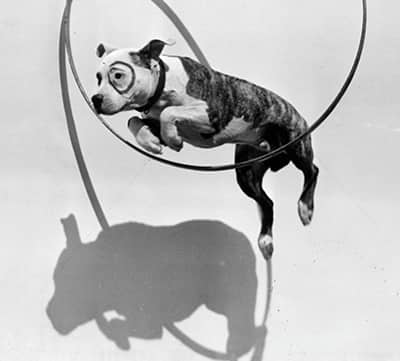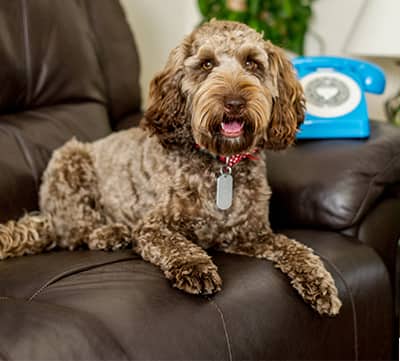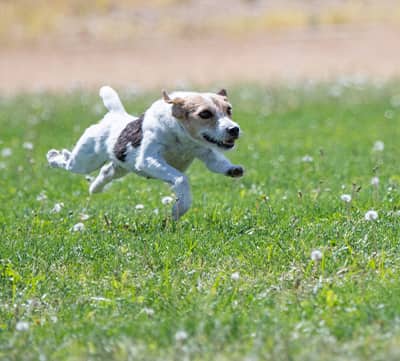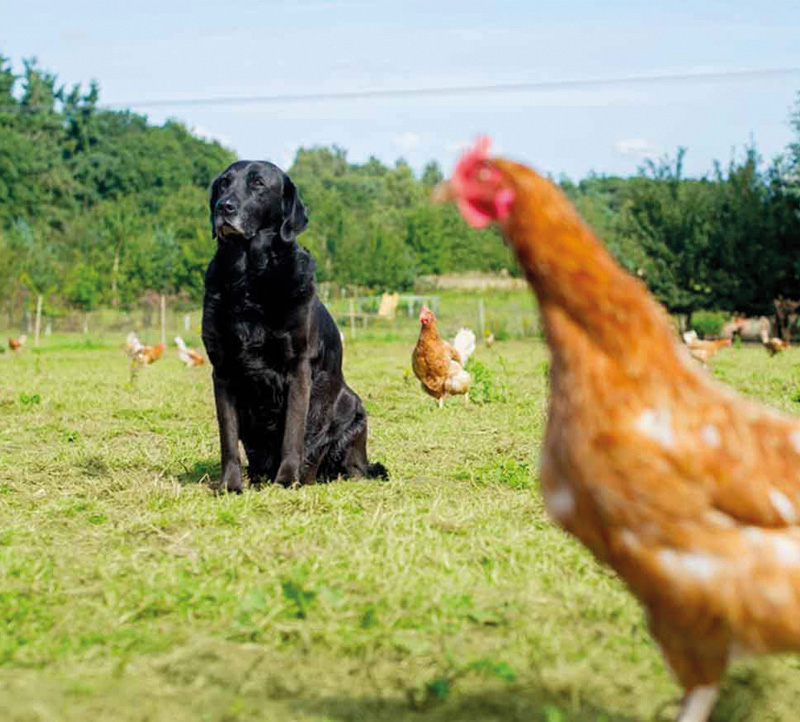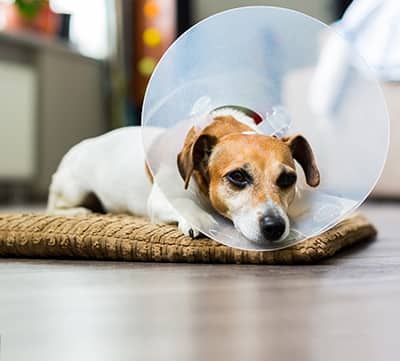Why so many dogs are overweight (and what to do about it)
Richard Allport BVet Med. Vet MFHom MRCVS
When I qualified as a vet in 1973 and was therefore entitled to put the letters MRCVS (Member of the Royal College of Veterinary Surgeons) after my name, the world was a very different place, and veterinary practice was a very different world.
If you were sitting in the waiting room of your local vet in 1973 you would have noticed two striking differences compared with sitting in the waiting room of your vet today. Firstly, the sales area (had there been one) was not packed from floor to ceiling with pet food. Secondly, there were very few obese dogs amongst the throng of pets waiting to see the vet.
Over the years, and over the last couple of decades in particular, there has been a phenomenal growth in the number of obese dogs amongst the canine population. Why is this so? It may be true that some dogs are getting insufficient exercise, but the increase in obesity has mirrored the increase in the feeding of high carbohydrate, low quality protein, processed diets.
I don’t believe this can be a coincidence.
Dogs in the seventies were mainly fed on scraps, leftovers, bones and cheap meat and offal from the local butcher. There were few dog treats available and most dogs had plenty of walks and runs. Obesity was rare. Dogs today are commonly fed on kibble, a form of dried food that is high in fats (to give it some taste) and in carbohydrates, and low in high quality protein. Essentially, this is junk food for dogs. Most canned foods are little better, some containing as little as three or four per cent real meat. There is a plethora of dog treats on the market. And obesity is common.
Dogs are carnivores. They have evolved to eat meat, offal, raw bones and vegetables.
Dogs are social animals. They are designed to have lots of play and interaction with other dogs and with their human companions.
If they eat what they have evolved to eat and are given the physical and mental stimulation they need, they will not get overweight. It’s as simple as that.
One caveat – some medical conditions, such as hypothyroidism, Cushing’s disease, diabetes and others, can cause a dog to become overweight. Hypothyroidism (an underactive thyroid) is often hard to diagnose, and there are probably quite a number of obese dogs that have an underlying thyroid imbalance.
If your dog is becoming obese, and does not have a medical condition that may be causing the weight gain, what can you do about it?
Your local vet may well have a weight control clinic. You can take your dog for a regular weigh in, and will be given advice about nutrition by a practice nurse, who will probably have a qualification in canine nutrition. Should you enquire whence this qualification came, it will almost certainly be a certificate or diploma granted by one of the major pet food manufacturers. For instance, many veterinary nurses are ‘Hills Pet Nutrition Advisers’. Hills is a multinational conglomerate that sells a range of processed foods, especially kibbles, and sponsors many veterinary meetings and advertises heavily to the veterinary profession.
There are several other multinationals that do much the same. Some provide free food to veterinary colleges and to animal charities, and some have actually paid the salaries of vets who lecture students on nutrition at veterinary colleges.
It seems unlikely that a major pet food company can train a veterinary nurse in nutrition without just a smidgeon of bias towards their own products. Products which are likely to be expensive and, in my view, entirely unnecessary ‘therapeutic’ weight reduction diet foods.
Rather than wasting your time, energy and money on visits to weight control clinics and pointless diets, read the articles on this website instead. They were written by Vicky Marshall, one of the founders of Honey’s Real Dog Food, and they explain clearly and straightforwardly what dogs should be eating, how their digestive systems work, why they can become obese, and how to get them back on track if they are getting overweight.
Richard Allport
BVet Med. Vet MFHom MRCVS
For more information and advice on any aspect of canine health and nutrition please contact Honey’s – we’ll be happy to help even if you never, ever plan to become a customer.
Web: www.honeysrealdogfood.com
Email: info@honeysrealdogfood.com
Telephone: 01672 620 260
